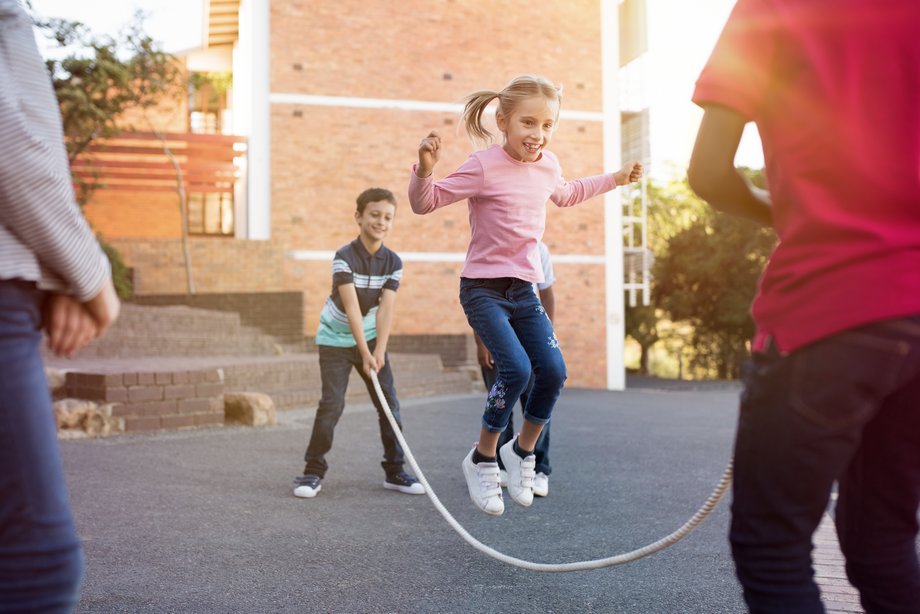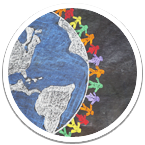Mental health of children and young people with a refugee background

After children have migrated to Finland, their wellbeing can be promoted in particular through age-appropriate activities such as participation in day care, school attendance and opportunities for play and hobbies.
The following factors support the normal development and wellbeing of all children:
- a safe, stable, and predictable everyday life
- provision of support and information to guardians
- experiences of inclusion and good friendships.
These factors are also important for children from refugee backgrounds who may have experienced very stressful and shocking things.
Psychological symptoms in children with a refugee background
Children are sensitive to change, and children with refugee backgrounds may have had to deal with a lot of change. Their mental wellbeing is often strained by factors such as:
- separation from and loss of loved ones
- living in a refugee camp
- their flight to safety
- uncertainty about the future
- racism and discrimination
- mental stress experienced by family members.
Everyday strains and stress factors deplete a child's resources and may have an overall impact on both a child's development (in areas such as learning new skills) and their behaviour and overall wellbeing.
The importance of supporting the growth environment and everyday life
When problems arise for the child or their family, it is important to provide early support so that the child’s normal growth and development are not put at risk.
The primary means of doing this is to provide support for the child’s growth environment and everyday life through actions such as supporting parenthood and providing parents with information on the child's development and any symptoms that have emerged.
It is important to provide children and families who are seeking asylum with a safe and child-friendly living environment where children can live in a way that suits their age and parents can sustain a safe everyday life. Professionals and adults that deal with children and young people with refugee backgrounds have a key role to play in
- creating a sense of security
- ensuring the empowerment of the child or young person
- supporting meaningful relationships
- ensuring that they have reliable adults around them who are concerned about their wellbeing
- supporting the child or young person in forming their own identity
- supporting stress management.
Children must always be regarded as children regardless of their type of residence permit or the stage of the permit process. Minor asylum seekers are entitled to the same health and social services as other municipal residents, including any necessary child welfare services. They also have the right to attend school and use student welfare services.
For children with refugee backgrounds, referral to specialised psychiatric care is based on the same criteria as for other children. Asylum-seeking children under the age of 18 who do not have a residence permit are also entitled to the same services as other minors.
Mental health support for unaccompanied minors
Often unaccompanied minors have experienced many stressful and difficult things, such as violence, insecurity, and loneliness. The welfare of children and young people is also strained by experiences during the asylum-seeking process and the integration phase, including:
- transfers between different units for minor asylum seekers, along with any resulting changes in schools and hobbies
- prolonged processes for seeking asylum or obtaining an extended permit, and short-term residence permits
- poor personal health or poor health of others with whom the minor lives
- being separated from their own family members and relatives and, at times, being responsible for them (e.g. financial responsibility)
- disappearance or death of close relatives
- a lack of Finnish friends
- negative decisions and decisions on refusal of entry
- difficulties with family reunification
- uncertainty and concern for the future.
The mental wellbeing of unaccompanied children and young people must be supported, especially in stressful crisis situations. These situations may include getting a negative decision, the enforcement of a decision on refusal of entry, an order to undergo an age assessment, or a transfer to another unit for minor asylum seekers or an adult reception centre.
Only some children and young people need professional psychiatric support. However, for many minors, mental strain and stress slow down the process of integration, language learning and building social relationships. It is important to quickly establish sources of help close to the child or young person as part of their everyday life. Familiar and safe adults, such as those present in housing units, are often important people and sources of support for minors.
The mental health of unaccompanied minors who are seeking asylum can be supported by
- Creating a confidential, safe, and encouraging atmosphere where children and young people can discuss, if they wish, the difficult things they have experienced.
- Paying attention to what a child or young person has to say. Minors must have the opportunity to express their own desires on matters that concern them.
- Providing low-threshold and flexible support from mental health professionals for as long as needed.
- Making use of multi-professional and cross-network cooperation between different actors, including minors' educational institutions, housing units and child protection professionals.
- Supporting the interests and strengths of the children and young people.
- Engaging with each child and young person as an individual and taking an interest in their thoughts and wishes.
Professionals can build trust with a child or young person through different functional methods, such as relaxation, music, narration, visual arts, and physical activity. Peer support can be provided to a child or young person from experts by experience and others in a similar situation.
Methods for supporting the mental health of children and young people
Let's talk about children
This is a structured method aimed at charting a child’s strengths and vulnerabilities in a balanced way.
Let's talk about children (MIELI Mental Health Finland)
Stabilising forms of support for refugees and asylum seekers
The Serene project has developed stabilising forms of support for those who have arrived in Finland as refugees or asylum seekers. These support forms aim to promote mental health and reduce the harmful impacts of post-traumatic stress and stress related to the adaptation process.
Serene materials (Lounais-Suomen mielenterveys ry)
Trauma treatment model for minors' units
The TASA project has developed a trauma care model for use in units for minor asylum seekers. The materials include: The workbook ‘Group Support Model for Minors’ Units’.
TASA project (Tampere university)
Mental health for migrants – video series for refugees
This multilingual video series provides information and tools for strengthening mental health, including perspectives from both people with refugee backgrounds and experts.
Mental health for migrants - video series for refugees
More information on an expert video
On this video, Psychologist, child psychotherapist Ann Christin Qvarnström Obrey looks at the phenomenon of refugee from the perspective of children, young people and families.




